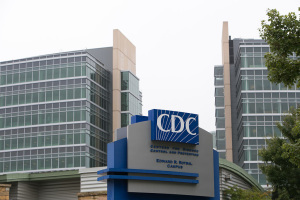March Beauty Makeover
As the temperatures dip low this winter, do you find your skin feels dry, nails become brittle or hair looks dull? If you are showing signs of winter weathering, Truestar is here to show you how altering your diet and lifestyle can help improve the way you look and feel! Last week we brought you “Part 1: Nutrition for Nails.” This week we will focus on how to eat right for healthy skin!
Nutrition for Healthy Skin
Nutrition is key to healthy looking skin. In fact, during the wintery cold months, nutrition is of extra importance as the cold temperatures can strip the skin of its natural moisture barrier and cause the top layer to dry and flake off. To keep your skin looking healthy, vibrant and wrinkle-free you must nourish your body from the inside out. The right vitamins, minerals and antioxidants are essential to keeping your skin looking and feeling its best!
To cleanse your skin from the inside out include these nutrients into your diet:
• Vitamin C: Vitamin C is necessary for collagen formation, a protein that keeps the skin supple and tight. For strong and healthy skin, include vitamin C-rich foods into your diet such as citrus fruits, cantaloupe, strawberries, tomatoes, broccoli and cabbage.
• Vitamin E: Vitamin E is necessary for healthy skin as it helps to fight against free radicals, which lie in every cell of the body and can destroy the skin tissue. Vitamin E-rich foods include whole grains, wheat germ, leafy green vegetables and nuts.
• Vitamin A: Vitamin A is a powerful antioxidant that is essential for healthy skin. Orange vegetables, including sweet potato, carrots and squash are high in the antioxidant beta-carotene, which the body converts to vitamin A. Other vitamin A-rich foods are eggs, milk and green leafy vegetables.
• Zinc: Zinc is an important mineral that is involved in the production of collagen and helps to repair skin damage. Zinc-rich foods include oysters, liver (beef, lamb, veal), lean beef, lamb and baked beans.
Other foods that contain zinc are milk, cheddar cheese and other dairy products, beans, roasted pumpkin and sunflower seeds, peanuts, turkey (dark meat) and chicken. Zinc is absorbed more readily from animal sources so, balance plant with animal sources to get more zinc.
• Selenium: Selenium is a mineral that is important in the production of glutathione, a destroyer of damaging free radicals. Selenium-rich foods include fish, shellfish, red meat, grains, eggs, chicken and Brazil nuts.
• Omega-3 fats: Omega-3 fatty acids add shine to your complexion and replenish moisture in dry skin. Omega-3 fatty acids also help reduce the inflammation that leads to skin disorders. Include omega-3-rich foods into your diet, such as cold water fish (salmon, mackerel and tuna), flaxseeds, nuts, soybeans and omega-3 eggs.
• Water: Staying hydrated is one of the most important factors in achieving healthy looking skin. Be sure to drink plenty of fresh distilled water—about eight glasses per day. Avoid dehydrating foods and beverages such as caffeine (cola, chocolate, coffee, tea) and alcohol.
Other Skin Savers:
• Follow the Truestar meal plans and anti-aging supplement plan.
• Getting the proper sleep and reducing stress can help you look and feel your best!
• Don’t smoke. Smoking causes the skin to age and depletes the body of the skin-saving vitamin C. See Smoking Cessation and Rehabilitation.
• Get moving! Exercise improves overall health.
• Follow a natural skincare regimen of cleansing, toning, moisturizing and protecting.




























